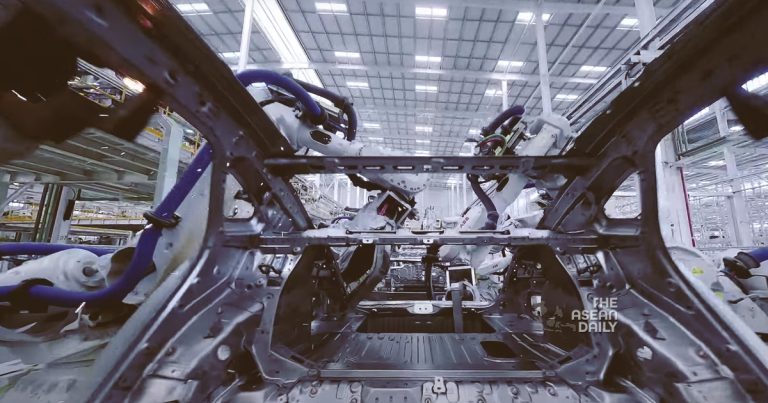15-8-2023 (BEIJING) As the new energy vehicle (NEV) market continues to grow, Chinese automakers and battery manufacturers are strategically considering overseas production to tap into new markets. Among the various potential destinations, South-East Asia stands out as a key region for expansion due to its growing demand for electric vehicles and supportive policies.
Recognizing the benefits of localized production, Chinese companies are aiming to launch products more swiftly and tailor them to meet local preferences. This move not only fosters stronger brand presence but also aligns with global sustainability goals.
Hozon, a Chinese electric vehicle startup, has revealed plans to commence production of its Neta-branded vehicles in Indonesia from 2024. Collaborating with PT Handal Indonesia Motor, Hozon aims to begin assembling complete cars in the second quarter of 2024. At the Gaikindo Indonesia International Auto Show, the company showcased three of its Neta-branded models, displaying its commitment to the Indonesian market.
Wang Chengjie, Assistant President of Neta Auto and Vice-President of Neta Overseas, expressed optimism about Indonesia’s potential to embrace electric vehicles, citing their effectiveness and eco-friendliness in supporting daily mobility activities.
Hozon’s expansion strategy extends beyond Indonesia. The company has already initiated the construction of a production plant in Thailand, set to become operational early next year. This plant aims to meet the surging demand for Hozon’s Neta-branded electric vehicles, which have gained popularity in Thailand. In June, Neta emerged as the top-selling EV brand in Thailand, capturing 28.9% of the market share.
China’s automotive giant SAIC is also capitalizing on South-East Asia’s appeal. The company has embarked on constructing a new energy industrial park in Thailand, dedicated to localizing the production of key auto parts for its new energy vehicles. The park, anticipated to be completed this year, spans 120,000 sq m and will house workshops, warehouses, and logistic facilities.
BYD, China’s largest NEV manufacturer, is set to begin vehicle production in Thailand in the coming year. The company’s wholly-owned plant, equipped with an annual capacity of 150,000 vehicles, reflects BYD’s strategic decision to leverage Thailand’s strong automotive industry and manufacturing capabilities.
EVE Energy, a China-based lithium battery manufacturer, has also made its mark in Southeast Asia. The company recently initiated the construction of a manufacturing facility in Malaysia with an initial investment of US$422 million. The new facility will focus on producing cylindrical lithium-ion batteries to support power tools and electric two-wheelers manufactured in Malaysia and across the region.




